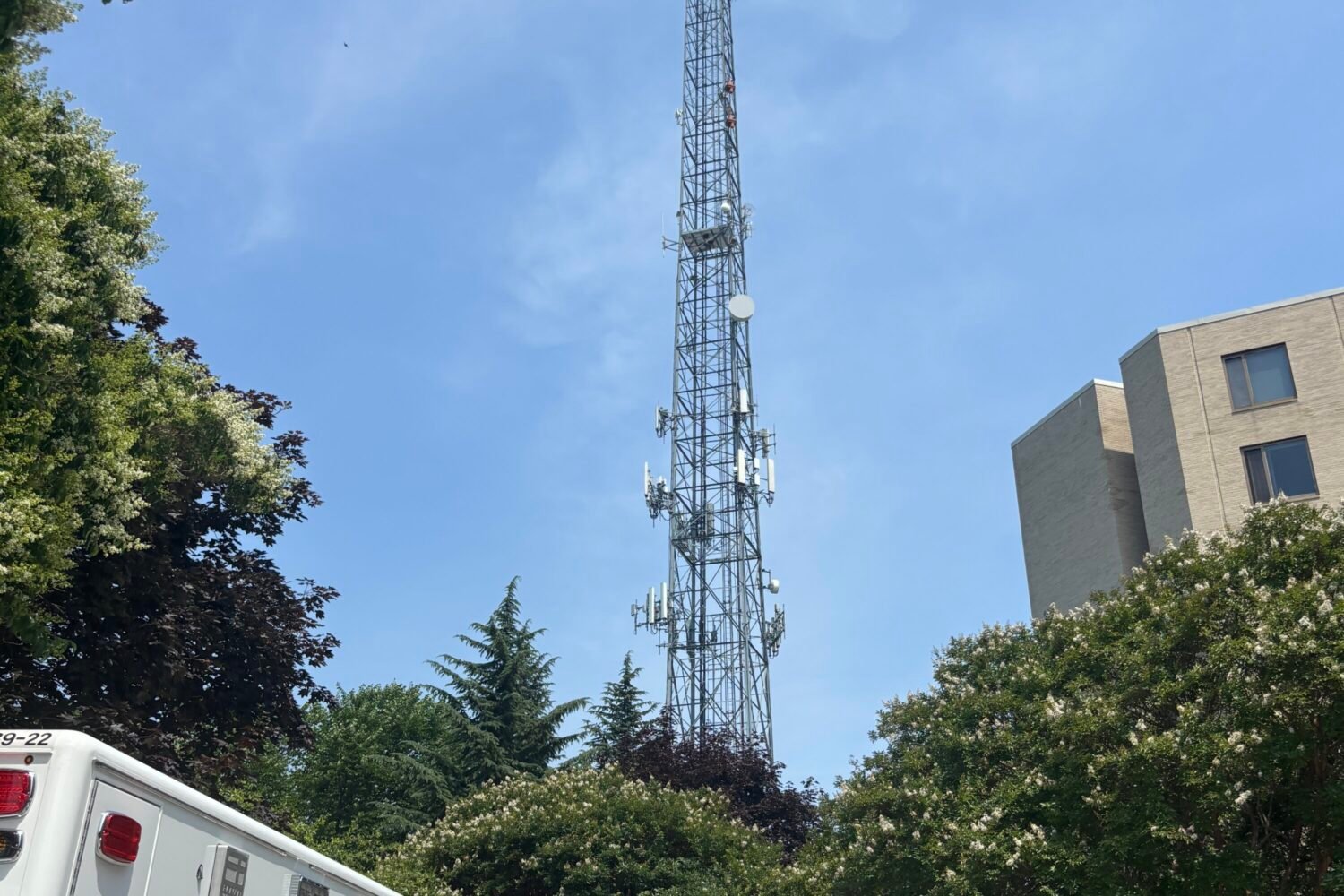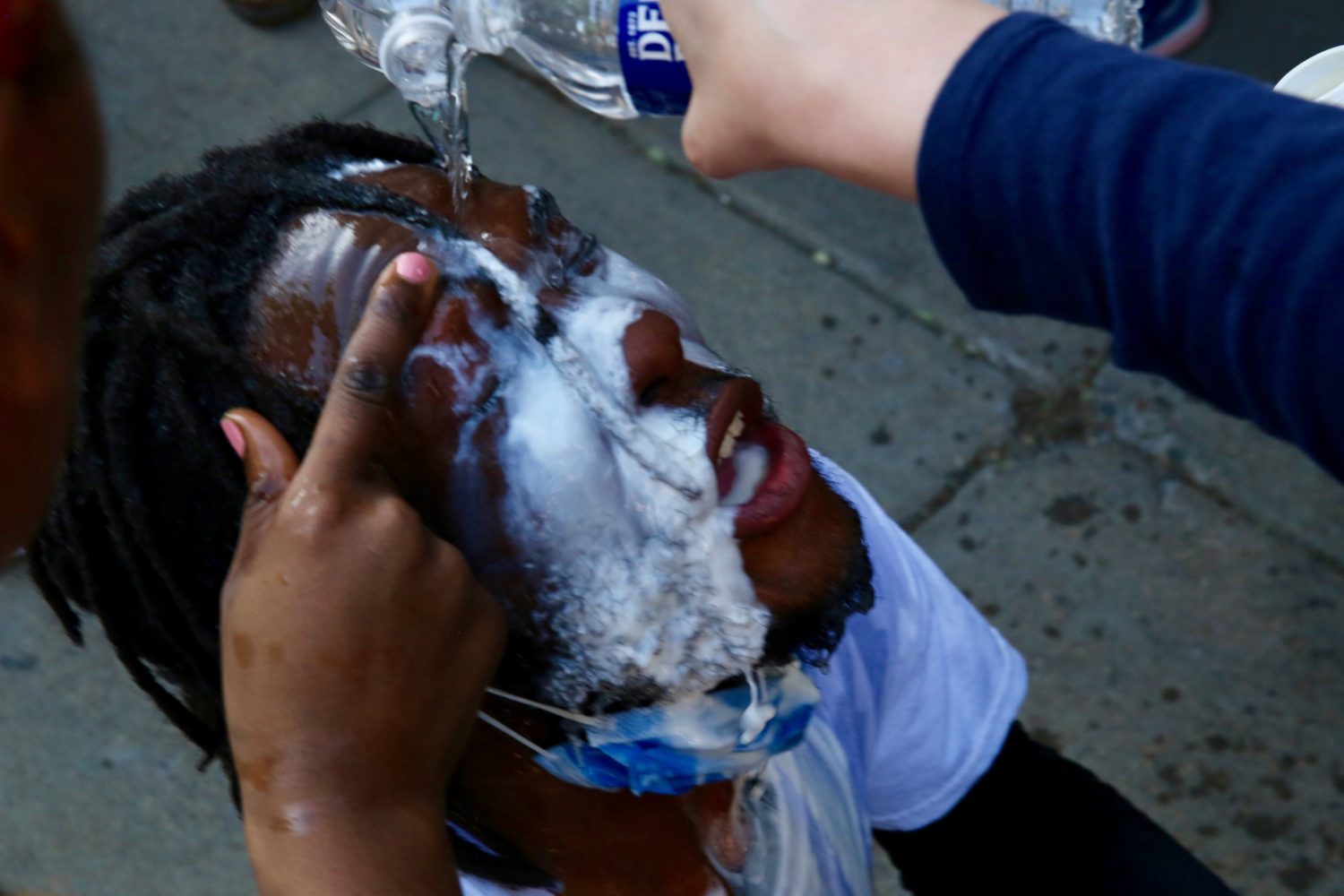For the past three months, as a viral pandemic swept Washington and debates raged about policing, DC has been quietly fielding a policy experiment that bears on both: Greatly reducing the number of people who spend time in jail.
The experiment has come in the form of a change in procedure for Metro Police officers, and how they interact with people who have committed certain crimes in the District. In the past, those crimes would commonly result in arrest and booking—bringing suspects into a jail facility for processing, fingerprinting, and perhaps spending a night behind bars.
Since March, officers have increasingly been using a different tactic: Citations, which means writing a formal order that instructs the suspect to come back to a police station in sixty days, or to appear at a court hearing on a scheduled date.
“If the police have the option to arrest [someone] for a misdemeanor, instead of processing the arrest, we could give them a citation to return to court,” explains Elizabeth Wieser, who leads the Public Safety Division in the Office of the Attorney General led by Karl Racine.
The policy was initially a response to the coronavirus pandemic, Wieser said, in order to “limit the number of people that are actually being arrested, [and] limit the number of people that are being held overnight for court.” By offering citations, the District could reduce viral transmission inside jail facilities, which might have spread back into DC neighborhoods.
An idea that started with a pandemic, however, has taken on a new dimension: The profound national dialogue about the purpose and role of police conduct that so often leads to unnecessary violence. “We have an opportunity to reduce the footprint of policing,” says Miriam Krinsky, a former federal prosecutor who now leads Fair and Just Prosecution, a think tank for progressive prosecutors. Arrests are “the front door of the justice system,” Krinsky said, adding that “citations in lieu of arrest are a critical tool for shrinking the criminal system.”
Citations have long been available as tools to police officers in the District who want to avoid making an arrest. But the new policy, handed down in an MPD “General Order” on March 17, expanded citations to other low-level offenses like misdemeanors and certain nonviolent felonies: A DUI or traffic offense, unlawful entry, shoplifting, or certain kinds of property offenses, like breaking a window. It also covers simple assault, one of the most common misdemeanor offenses in the District—when someone starts a fight but without serious injury, the kind of scuffle that brings police sirens to a popular bar on any given Friday night. “Right now,” explains Wieser, “that person would most likely be given a notice to come to court on a later day.” (Other forms of assault, like domestic violence calls, are within the standard protocol of arrests.)
The results were visible almost immediately. Usually, the overnight jail population ranged between 90 to 120 on a given day, says Wieser. After the policy, it more typically held around 30. (However, OAG could not provide specific figures.) “This new procedure has reduced those numbers dramatically,” says Wieser.
But DC’s experiment is far from a costless gesture—it involves real risk. The most obvious is whether a paper citation will induce suspects to show up for their court date, or at least appear in court at comparable rates as before. Another question is whether citation-holders are any more or less likely to commit offenses while they’re waiting for their day in court.
OAG will be monitoring both figures closely. The first court dates have been set for August, with more following in September and October. Only then will DC leaders have an early sense of the experiment’s outcome. “We don’t have a crystal ball,” says Wieser. “We don’t know yet what the data is going to show.”
That debate around citations has taken on additional meaning after a series of police killings that set off nationwide protests. And this year, DC is just one of several cities experimenting with citations-in-lieu-of-arrests. Criminal justice researchers are intensely interested to see the effects. “This is a moment where everyone is being tested and trying new things,” says Krinsky, the former prosecutor turned reformer. Her organization estimates that twenty cities have expanded their use of citations this year, including Baltimore. Says Krinsky, “Times of crisis force us to rethink old ways of doing business.”
It’s not hard to see why. In some of the most visible police killings this year, what ended with a civilian death began with a low-intensity situation that escalated dramatically. In Minneapolis, George Floyd was killed after police responded to a call about a counterfeit $20 bill, and attempted to arrest him; in Atlanta, Rayshard Brooks was shot by police who had originally responded to suspicions of a DUI, then attempted to place him under arrest.
Both are the kinds of minor transgressions that, in a citation-only policy, officers might not be detaining someone at all.
“If [police] know it’s at most a citation, maybe there’s less escalation that would happen,” says Cherise Fanno Burdeen, an executive partner at the Pretrial Justice Institute, a group that lobbies for incarceration reform policies like eliminating cash bail. Citations, Fanno Burdeen added, “confront the way we think about why we arrest people, and what the purpose of policing is.”
Americans are generally used to the idea that if you break the law, you’re taking a trip to the local jail for booking. But it wasn’t always so. In broad terms, the use of a jail cell has increased in the United States during the last thirty years: Between 1983 and 2012, even as the crime rate (and the number of arrests) dropped dramatically, the use of jail admission for those arrests climbed steadily. In 1983, any given 100 arrests meant that about half would go to jail, and half wouldn’t; by 2012, every 100 arrests saw 95 go to jail. As the United States has become familiar with the prevalence of jails in American culture (think about the trio from the movie “The Hangover,” who have to talk their way out of a Las Vegas jail) it’s become commonplace to view a booking in jail as the first line of deterrence. As Fanno Burdeen puts it, “it’s the idea that we arrest people, and it’s the start of their accountability for their actions.”
But an over-reliance on jails has its own costs. While many think that a short stint in jail “has the benefit of ‘teaching people a lesson’ and showing them the seriousness of their misconduct,” says Krinsky, a growing body of research suggests that the benefits are more complex. A report from the Arnold Foundation found that when defendants for similar crimes are held in pre-trial detention, those detained for two or three days were more likely to commit new crimes before trial, when compared to similar defendants held for less than 24 hours. Krinsky suggests a reason: “What those short periods of incarceration do is destabilize individuals,” she says. The longer someone is in jail, the more likely some people are to miss a shift at work and possibly lose their job, lose a housing arrangement, or miss a doctor’s appointment to receive medication for mental health or other ailments.
But while the potential costs of jail bookings are becoming better understood, the benefits of an alternative policy, like citations, are still hard to come by.
“The main questions are: Are people going to come back to court, and are they going to be nefarious while they’re out?” sums up Fanno Burdeen. She was mostly confident that DC’s expanded use of citations would just reflect the same patterns already seen in the pretrial system in DC, where 94 percent of people are released before trial, no one is detained for an inability to pay bond, and more than 90 percent are not rearrested before their court date. (DC is one of the few jurisdictions in the United States that has this pretrial system.)
And certainly no one views citations as a panacea for police violence: Krinsky said she preferred alternative models that “divert cases away from law enforcement entirely.” Fanno Burdeen was cautious to point out that the kinds of things that lead to an escalating conflict—an insult, rough handling by an officer, or racial profiling—aren’t eliminated by citations, either.
Still, national data that could make the case for citations remains scarce: One prominent report in 2016 declared that usable national data about citations was “nonexistent.” While there’s evidence that citations don’t lead to new crimes, those trends might differ once they expand to cover new misdemeanors and felonies, like DC’s order. And it remains to be seen whether such an expanded use of citations would mean that more defendants skip their court date. “We don’t yet have the depth of data that could fully answer that question,” says Krinsky.
That’s part of the reason why DC’s controlled experiment, along with those of other cities, could have such an outsize effect on the national debate.
“It will be really interesting to see if things are better, or thing are the same, or things are worse—we just don’t know,” says Wieser, the Deputy Attorney General. She adds that whatever the results, the city’s leaders will have to strike a balance between safety and equity, just like all law enforcement decisions. “Public safety is the top concern,” says Wieser. “At the same time, we also have to be mindful of what’s best for the residents of our community.”
In the balance, DC residents are now part of an experiment that could shape the future of policing, or at least an aspect of it. “The Attorney General is really interested in what the data is going to show us,” says Wieser. “The data is going to inform whatever we decide to take on.”


















